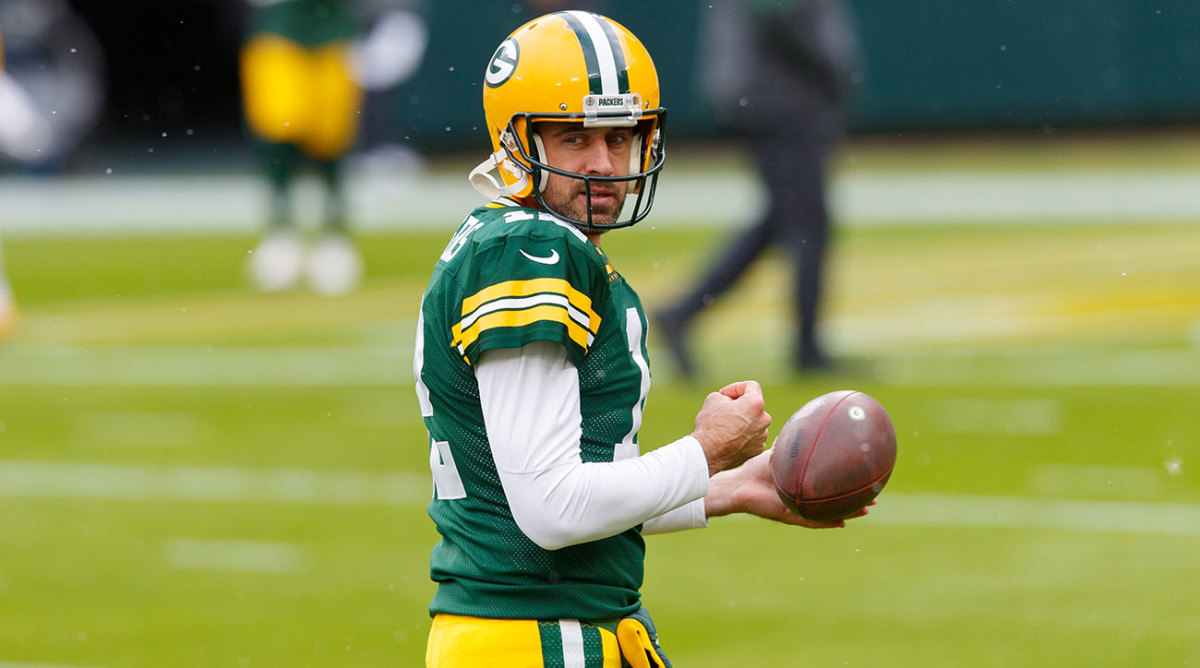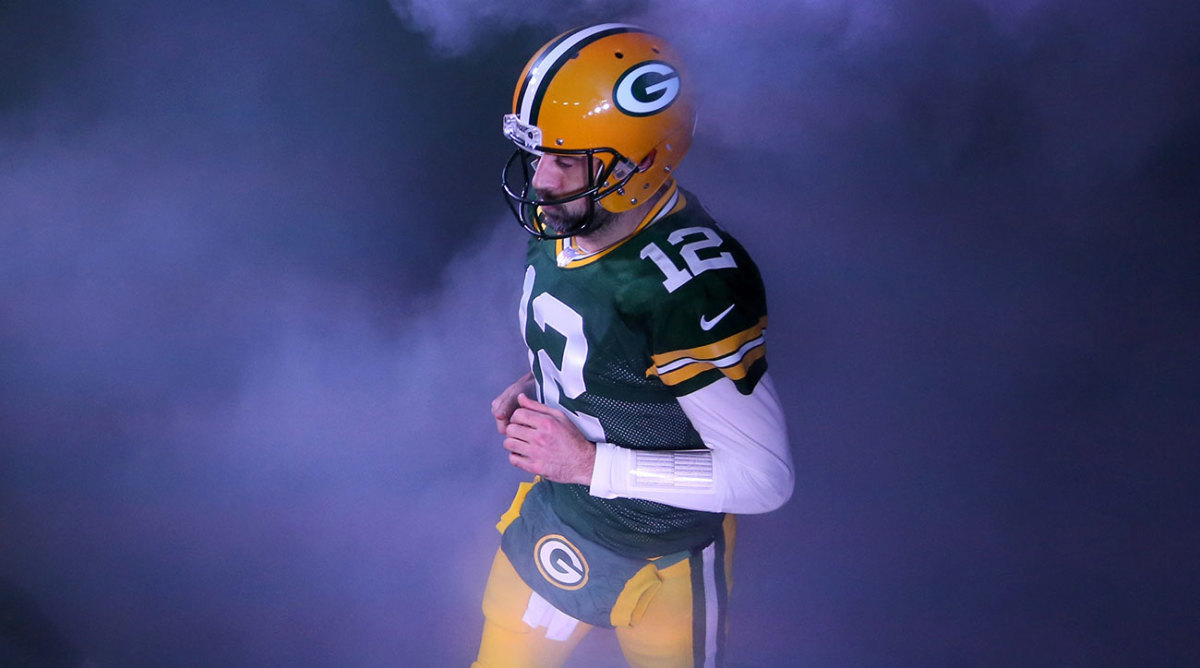Business of Football: The Fight for Control in Aaron Rodgers's Rift with the Packers
I have written often in this space about my decade as vice president of the Packers. I spent three of those years with Brett Favre—one of the game’s iconic superstars at that time—as our starting quarterback and Aaron Rodgers as his backup. There was tension in that situation between the two of them that surfaced from time to time; we were able to keep that largely hidden from public view. And last year the Packers did the same thing we did 16 years ago: drafted a first-round quarterback—in this case, Jordan Love—to eventually replace an iconic one, with Rodgers now cast in the role of Favre. Circle of life. Let’s look backward and forward.

Rodgers’s arrival: No one was happy
Most fans and members of the media see a draft pick, react to it and move on with their lives. NFL front offices, however, must live with those decisions every day and there are lasting impacts.
We never went into the 2005 draft wanting to pick a quarterback. But, as I have recounted often, Aaron was the lone prospect with a first-round grade who was remaining on our board when we arrived at our pick. With no offers to trade down, we took him at No. 24. Aaron Rodgers basically fell into our laps.
No one was happy with the pick. The fans hated it; the Lambeau Field draft party going on below us booed so loudly that it shook our souls. The media gave us F’s in their grades. Favre was livid; he called our coach right away, and his agent called me. And for the next three years, we would hear from Brett’s camp asking: “Andrew, do you know what it’s like to come into work every day and sit with your replacement? That stinks.” And I would hear from Aaron’s camp asking: “Andrew, is he ever going to play? Brett’s never going to retire; you know that.”
I tried to be as professional and tactful as possible, showing empathy, but I had no good answers. We knew Aaron would eventually be our quarterback. We just didn’t know when. It took three long years before we turned over the team to Aaron, only to have Brett unretire and expect to be given his job back, leading to a messy divorce.
Battle over timeline control
We are now one year into the Rodgers-Love pairing, and like the Favre-Rodgers pairing, it has needed to be managed to keep Aaron happy and engaged while knowing there is an endpoint to come in his time at Green Bay. My sense is Aaron’s camp feels strongly that the situation has not been treated with the care and respect he deserves as someone playing the way he has while his future job security was removed.
Aaron was a team player about the Love pick over the past year, at least publicly, but it sounds like that acquiescence has ended. He understands the reality that I have noted often: Aaron is the MVP of the NFL while also serving as a placeholder quarterback for the Packers, keeping the seat warm for Love. The only question about when the turnover happens, as the question was 15 years ago, is when.
The Love pick a year ago started the clock on an expiration date for Rodgers and the Packers, now complicated by his playing at an MVP level. My sense is he was never going to be replaced in 2021. I’ve always thought that Love would sit for two years, with a transfer date of 2022. And that has likely been the Packers’ plan: to play the three-time MVP this season while preparing Love for the role next year. Rodgers has now thrown a wrench into those plans. He wants to control the timeline, not let the Packers control it. It is a fascinating struggle for power and control of “the plan.”

How the Packers operate
The news of Aaron’s unhappiness is not shocking. What exactly did the Packers think his reaction would be, whether last year or this year?
To be clear, I don’t subscribe to the narrative that the Packers have not “helped” Rodgers on the personnel side. The Packers have a top-five offensive line, a top 10 running back, maybe the league’s top receiver and their tight end led the league in touchdowns for the position. I know a new standard was set with Tom Brady importing veteran personnel to Tampa, but we all know the Packers are never going to allow that. To me, however, that does not appear to be the real issue with Aaron. Rather, it is a more personal issue about open and honest communication from team management, especially the general manager.
Having been in that building for 10 years, I know firsthand how the Packers operate. There is no owner: There is a president, an executive committee and a board of directors, and they all defer to the general manager on football issues. It has always been that way since before I got there in 1999. And general manager Brian Gutekunst is a disciple of Ted Thompson, someone with elite evaluation skills but deficiencies in communication and expression. The personnel staff at the Packers have always lived and breathed scouting and are excellent at what they do, but there is some lacking in people skills. Moreover, there does not appear to be anyone in the Packers’ front office who is a point person for Rodgers, someone he can trust on issues far beyond football.
Not a regular player
Aaron and his agents have probably wanted to know “the plan” for him and Love for some time. Having been in that position, I understand why the Packers have probably been vague in answering him. Teams want as much flexibility as possible. They don’t want to be locked into a decision and later accused of reneging or, worse, lying. But what seems to have been needed with Aaron is a softer touch, a point person in the front office to level with him and provide a clear picture of the present and future.
Here is the reality: Sports, as entertainment, is a star-driven business, and Aaron is a true A-lister in sports. Yes, football is a team game and coaches preach "all for one, and one for all," blah, blah, blah, but that ignores the reality in the business of sports: Greater talent merits greater leverage for different treatment.
Superstars who move the needle are not the same as other players. We treated Brett differently from the rest of the team; it was simply good business to do that. My sense is the Packers have certainly treated Aaron as well as any player they have, but for what he has done for them, that is not enough.
I have negotiated player contracts for two decades and managed an NFL salary cap for one. I have learned—sometimes the hard way—that the numbers will eventually take care of themselves. What really matters are the relationships. It is a people business, and there are no more important people than the ones who drive your product. It can be frustrating for accomplished people to cater to superstars—agents and managers do it every day—but that is the business we are in. And it happens throughout sports, music and entertainment.
What to do
As for Aaron’s contract, I understand the Packers not wanting to extend him—he has three years left; he won’t be there that long—and not wanting to push out cap money to increase the dead-money charge when it is Love’s team. I certainly did not want to do push-out cap charges with Brett’s contract to add a burden when it was Aaron’s team.
I have always thought that the Packers should just add money to this year’s salary: no extension, no cap push-out, just no-strings-attached additional cash this year. He was the MVP; he deserves it. Perhaps they have offered that—it doesn’t seem that hard. They could also guarantee 2022 and/or 2023; the guarantee would travel with him to his next team.
As for the breathless reporting of a potential trade, well, as Aaron says, relax. I have always said that Aaron will be traded but not in 2021. Do I believe he is unhappy? Yes. But we’ve been here before, this offseason. Remember when Deshaun Watson would be traded (before his legal issues became public knowledge)? Remember when Russell Wilson would be traded? It is a long offseason; teams can’t react like fans or media. And players can’t trade themselves.
As for Aaron “retiring” as Carson Palmer did many years ago, well, I suppose that could be an option but a risky one. The Packers would place him on the reserve/retired list and he would have to apply for reinstatement to unretire. I suppose someone could make a “stupid offer” to the Packers to provide great value for the retired asset, as the Raiders did to the Bengals with Palmer, but front offices are smarter than they were those days.
How to solve Aaron’s unhappiness? That is hard to answer, but perhaps there are allowances the team can make, whether giving him a long leash to host Jeopardy! or otherwise; adjusting his workout bonuses to allow him more time away in the offseason; allowing him more input into some of the bigger personnel moves, etc. The key for 2021 will be to somehow keep their superstar engaged and motivated while he keeps the seat warm for an unproven player (as Brett did for him). That is not easy, but as we did 15 years ago, the Packers brought this on themselves.
I always say that the business of sports always wins. But this is no longer business; this is personal.
And one note on the third pick in the draft …
The 49ers traded up a month ago from the 12th pick to the third to, as we now know, select Trey Lance. I laughed when I read that many believing that over the past month San Francisco was still deciding between players. Please. No team makes a trade like that without knowing exactly who the trade is for. Coach Kyle Shanahan said in an interview that he fell in love with Lance in January, then it was just a matter of maneuvering to get him. And they paid a ransom to make sure.
In trading two first-round picks and swapping this year’s first-round pick, the 49ers gave up more for Lance than the Bears gave up for Khalil Mack, the Rams gave up for Jalen Ramsey and the Texans gave up for Laremy Tunsil. Think about that. Lance may turn out to be a superstar, but for the compensation given up to acquire him, he better be.
More NFL Coverage:
• Breer: Inside the Biggest Stories on Draft Night
• Orr: Is Urban Meyer ready for Trevor Lawrence?
• Orr: Drafting Trey Lance will define Kyle Shanahan's legacy
• Vrentas: The Patriots' post-Brady era begins now
